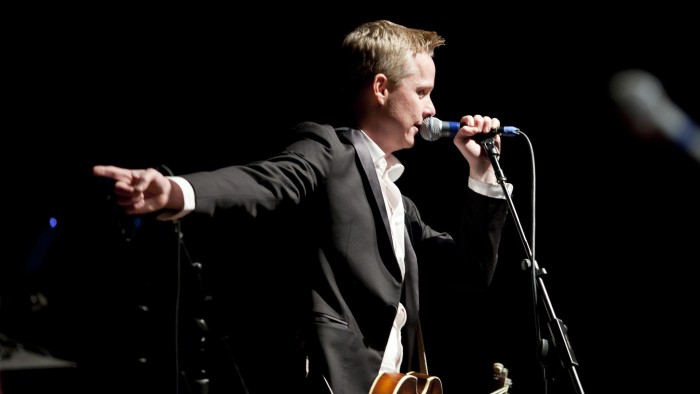Marketing, statistics and rock ‘n’ roll

Simply sign up to the Business education myFT Digest -- delivered directly to your inbox.
There is a lot of talk these days of legendary professors, those with “cool” economic theories or “hip” presentation techniques. But some business schools have professors who have gone one step further: they have set up their own rock bands.
Putting aside the flow charts and economic algorithms, these professors opt instead for bass guitar, drums or a microphone – or in same cases all three. Some even play in multiple bands.

At St Gallen University in Switzerland it is the dean of the business school, Winfried Ruigrok, who leads the way. Donning shades and a shiny shirt under the stage name “Lizard King”, he plays bass guitar and is a vocalist with St Gallen band No Business, which covers songs by Robbie Williams, Oasis, Bob Dylan and Kylie Minogue. He is also with a rock band at Amsterdam Business School.
No Business drummer Oliver Gassmann – professor of information management by day, “Bonzo” by night – plays in a second academic band, known as B110. They have gone as far as recording their own CD.
The genesis of the St Gallen band occured late one evening in a professor’s flat in Switzerland in the late 1990s. “We never planned to become a proper band but we were enjoying it,” recalls Prof Ruigrok. In 2001 or 2002 there was a university party and the students asked the professors to play in front of around 200 students. “People were actually fighting outside to get in. A year later we were the main act.”
For four marketing professors at the Wharton school at the University of Pennsylvania it was a similar story, says guitarist and vocalist Keith Niedermeier. “We got together mostly as a lark. We were just playing at professors houses’ when MBA students got wind of it and asked the professors to play at the [Wharton] pub.” The band, Brand Inequity – a pun on the marketing term brand equity – then became involved in the Battle of the Bands at the university. That was seven years ago. Now the band plays several times a year.
While many of the professors involved had dreams in their youth of running away with a rock-and-roll band, Prof Niedermeier actually worked semi-professionally as a rock musician, playing in clubs four or five nights a week, before he decided academia was the career for him.
This means that when Brand Inequity start playing their classic rock repertoire, the MBA students are both surprised and impressed, says Prof Niedermeier. “I think they think we are going to prattle through some songs and be awful.”

Fellow Wharton marketing professor Americus Reed (drums, percussion and background vocals) believes the band is about more than just a way to let off steam. “We really see it as an approach to engage the students outside the classroom, that’s really why we do it,” he says.
“When they [students] see you on stage playing music, it makes you more human. It forces them to rethink the stereotypes.”
Finance professor Alex Edmans, who now plays in a rock band at London Business School, but previously played in another Wharton band called the Seven Huntsmen, says the band is a great way to help build the business school community.
“Students comes to Wharton or LBS not just for courses. What they come for is lifelong bonds with other people, not just students, but professors,” he says. His most recent gig was in Shoreditch in east London. “Even the dean of LBS Sir Andrew Likierman – a knight – came to Shoreditch to hear us play.”
Prof Ruigrock believes that rock music can help build relationships in the faculty, too. No Business now plays at the annual academic retreat as well as at student events. “It’s a great asset to a university if you [professors] find a way to interact with colleagues. You may have issues with colleagues, but when you play together the issues go.”
Furthermore, there appears to be a natural affinity between the two fields, believes Prof Gassmann. “Professors are creative people. If you look at creativity there are a lot of parallel lines between academia and music.”
Prof Niedermeier agrees. “I feel stepping out in a classroom has a similar feeling,” he says. “You want to connect with and understand the audience. When you get a positive response you feel good about it.”
So what does the future hold? “We don’t have any delusions of becoming rock stars,” says Prof Niedermeier of his Wharton marketing colleagues. Nor does Prof Ruigrok plan to give up the day job. “Why do we do this?” he asks. “We do it for fun.”
The initial appeal of a university gig is clear, says the mild-mannered Prof Gassmann. “If you have 1,000 students behave as if you are Robbie Williams, it is really cool.”
Comments